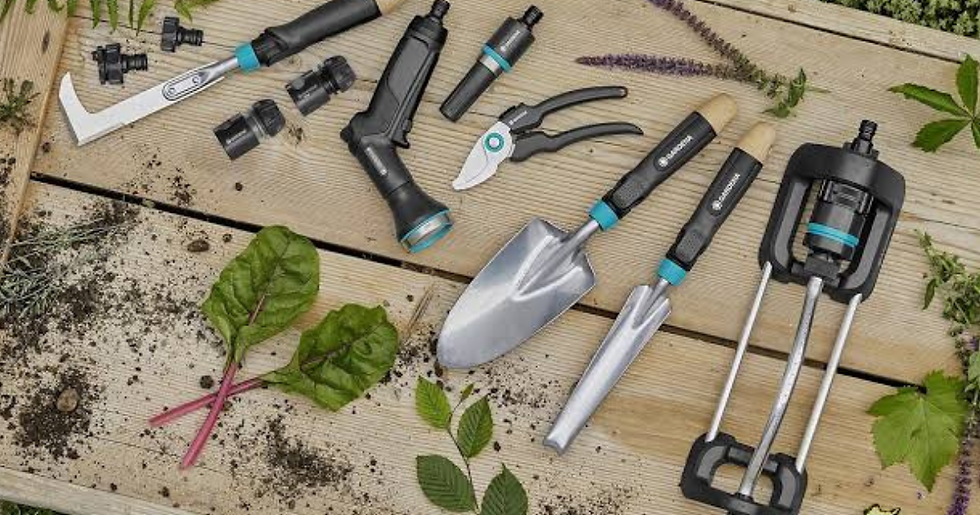Eco-Friendly Gardening: Tips for Sustainable Home Horticulture
- Youth for Environment in Schools Organization YES-O
- Nov 27, 2023
- 3 min read

Creating an eco-friendly garden is a rewarding endeavor that not only enhances the beauty of your outdoor space but also contributes to a healthier planet. By adopting sustainable practices, you can minimize your environmental impact while enjoying the pleasures of gardening. Here are practical tips for individuals looking to cultivate an eco-friendly garden at home, incorporating principles of composting, water conservation, and mindful plant choices.
1. Composting Magic

Transforming kitchen and garden waste into nutrient-rich compost is a cornerstone of eco-friendly gardening. Set up a compost bin or pile to dispose of fruit and vegetable scraps, coffee grounds, eggshells, and yard clippings. Composting not only reduces landfill waste but also enriches your soil, promoting healthier plant growth.
2. Water-wise Gardening

Water conservation is paramount in eco-friendly gardening. Choose drought-tolerant plants that require less water, and group plants with similar water needs together. Consider installing a drip irrigation system to deliver water directly to the roots, minimizing evaporation. Collect rainwater in barrels for use during dry spells, further reducing your reliance on traditional water sources.
3. Native Plants and Biodiversity

Opt for native plants in your garden, as they are adapted to the local climate and require less maintenance. Native plants also provide essential habitats for local wildlife and contribute to biodiversity. By cultivating a diverse range of plants, you create a balanced ecosystem that supports beneficial insects, birds, and other wildlife.
4. Natural Pest Control

Instead of resorting to chemical pesticides, embrace natural pest control methods. Introduce companion plants that deter pests, such as marigolds to repel nematodes or basil to protect tomatoes. Encourage natural predators like ladybugs and lacewings that feed on harmful insects. This approach maintains a healthy balance in your garden without compromising the well-being of the environment.
5. Mulching for Moisture and
Weed Control

Mulching is a simple yet effective technique for moisture retention and weed control. Apply organic mulch, such as wood chips or straw, around plants to suppress weeds, reduce evaporation, and regulate soil temperature. Mulching also enriches the soil as it breaks down over time, contributing to a healthier garden ecosystem.
6. Sustainable Garden Design

Plan your garden layout with sustainability in mind. Position taller plants to provide shade for sun-sensitive varieties, maximizing water efficiency. Implementing companion planting strategies, such as planting beans near corn to enhance soil nitrogen, contributes to the overall health of your garden. Thoughtful design choicesensure a harmonious and sustainable garden space.
7. Avoid Chemical Fertilizers

Minimize the use of synthetic fertilizers, which can harm the environment and disrupt soil health. Instead, opt for organic fertilizers or create your own compost to naturally enrich the soil with essential nutrients. Organic alternatives promote long-term soil fertility without contributing to water pollution or soil degradation.
8. Responsible Garden Waste Management

Dispose of garden waste responsibly by incorporating it into your compost or using it for mulch. Avoid burning or sending green waste to landfills, as these practices contribute to air pollution and environmental degradation. By recycling garden waste within your property, you contribute to the circular flow of nutrients in your eco-friendly garden.
9. Sustainable Garden Accessories

Choose eco-friendly materials for garden accessories such as planters, tools, and decorations. Opt for recycled or upcycled items, and select long-lasting, durable materials to reduce the need for replacements. Sustainable choices in garden accessories align with the overall goal of minimizing environmental impact.
10. Continuous Learning and Adaptation

Stay informed about eco-friendly gardening practices and be open to continuous learning. Gardening is a dynamic process, and new sustainable techniques may emerge over time. Embrace experimentation and adapt your practices based on the evolving understanding of sustainable horticulture.
Cultivating an eco-friendly garden is not just about creating a visually appealing outdoor space; it's a commitment to environmental stewardship. By incorporating composting, water conservation, and mindful plant choices into your gardening practices, you contribute to a healthier planet while enjoying the many joys of nurturing a thriving, sustainable garden at home.




Comments